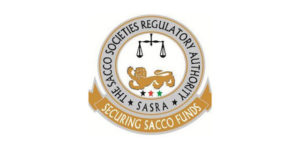In the 17 months leading to March 2021 Savings And Credit Co-operative Societies (SACCOS), lost a total of 106 million Kenyan Shillings to cyber theft. This is according to reports.

The occurrence is being tied to the increase in mobile banking brought on by the still ongoing Coronavirus pandemic. It also provides an indication to the fact that there is now a corresponding need for insurance covers and more fortified systems so as to effectively protect the billions of Kenyan Shillings in their care.
A recent report on the financial sector’s stability, revealed that the losses incurred are indeed in direct correlation with the increase in the use of digital avenues like mobile banking. The financial sector stability report was prepared by financial regulators which include the Central Bank of Kenya (CBK), as well the Savings And Credit Co-operative Societies (SACCOS) Regulatory Authority.

According to the financial sector stability report the losses which are an equivalent of 208,000 Kenyan Shillings or 6.23 million Kenyan Shillings per month, were incurred via the software vendors which have been engaged by the Savings And Credit Co-operative Societies (SACCOS). This was an indication of the weaknesses in the sector that handles more than 800 billion Kenyan Shillings in customer deposits.
The Savings And Credit Co-operative Societies (SACCOS) have now been told to strengthen their control systems and should also go over the contracts which have been signed with the software vendors so as to ensure that the dealers will compensate the Savings And Credit Co-operative Societies (SACCOS) whenever the losses happen.
Read Also: Job Losses Result In 1.3 Million Kenyans Stopping SACCO Savings
The financial sector stability report stated that, “All saccos must now review and enhance their IT security including their service level agreements to ensure that affected saccos are compensated by the vendor in the event of an attack where the vendor is culpable. Saccos are also encouraged to undertake indemnity covers to safeguard against attacks.”
The Savings And Credit Co-operative Societies (SACCOS) are reportedly under pressure to invest in control systems that are significantly more powerful in order to boost their chances of getting into the National payment system without then becoming the weak link in Kenya’s financial services sector’s fight against cyberattack.
This is coming after Serianu which is a cybersecurity consulting company made it known via a report it released in the middle of August 2021 that 21 percent of the Savings And Credit Co-operative Societies (SACCOS) do not carry out any audits on cybersecurity. 48 percent of the Savings And Credit Co-operative Societies (SACCOS) carry out said cybersecurity audits once a year. This leaves them unaware of the weaknesses within their networks.

The expansion of branch networks, increase in mobile banking, and an increase in connectivity to external Information Technology (IT) networks are believed to be some of the factors that lead to financial companies being more vulnerable or susceptible to attacks.
Serianu made it known via the report that, “Our research indicates that there is increased targeted attacks on Sacco mobile transaction infrastructure. Additionally, weak IT infrastructure is exposing Saccos to attacks.”
Around 22 percent of Savings And Credit Co-operative Societies (SACCOS) do not conduct any of the needed due diligence on the vendors they hire before hiring them. 58 percent of the Savings And Credit Co-operative Societies (SACCOS) only carry out background checks on their major vendors.
A lot of Savings And Credit Co-operative Societies (SACCOS) are reportedly spending the vast majority of their Information Technology (IT) budgets on the acquisition and launching of the needed technological infrastructure. Said Savings And Credit Co-operative Societies (SACCOS) are however, not spending enough to maintain and adequately secure the networks.
In 2020 the number of Savings And Credit Co-operative Societies (SACCOS) that spent between 500,000 Kenyan Shillings to 1 million Kenyan Shillings on making their Information Technology (IT) systems more modern, increased from 27 percent from the 14 percent that was the case in 2019.
How informative was this article? Are there any other news topics, categories, or How To topics, that you would like us to write on? Feel free to reach out to Mpesa Pay in the comment section.


